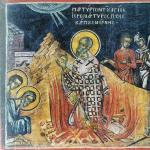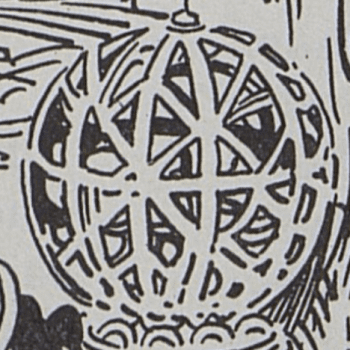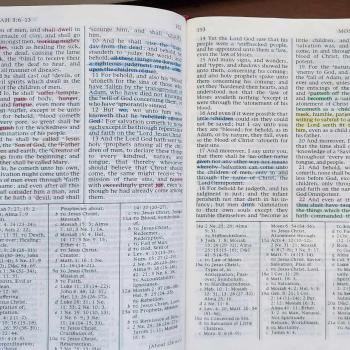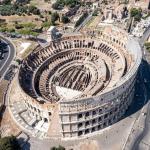I participated in a mock jury online. It was a civil case. We heard the plaintiff’s case and then the defense’s case. The plaintiff and defendant counsel spoke for just under two hours giving us the information they felt pertinent to the case for us to see a verdict.
The moderators then divided us into groups of eight and asked us to deliberate a decision. The case seemed so obvious to me. I felt surprised by the disparate reactions to the same information I’d heard. As people talked, I realized they heard a piece of information which fully engaged their minds (and emotions) and so they actually didn’t hear subsequent information. I’d heard the initial information, too, but the subsequent information changed my perspective.
When I mentioned the additional information, they said they didn’t hear or remember those details.
After we finished, I looked for information on the case online. Reading through news releases, I realized that some of the details included there could have shifted my decision again.
Since the experience, I’ve been thinking about how our perspectives can really cloud our vision.
Joseph’s Brother’s Couldn’t See Him
Today, my scripture study included Joseph in Egypt. As his brothers bowed before him, Joseph clearly recognized them. His brothers didn’t recognize him.
And Joseph knew his brethren, but they knew not him.
How is that even possible?
A phrase that sticks out to me in the story is
And Joseph was the governor over the land, and he it was that sold to all the people of the land.
Did he know his family would come to Egypt for grain? Did he deduce that or did the Lord reveal it? Regardless, Joseph positioned himself to be at the right place if his brothers came to Egypt.
The brothers sold Joseph to the Midianites in his late teens, so even though his features had matured during intervening years, he would look essentially the same. Egyptians shaved their faces, so Joseph would stand barefaced towards his brothers.
Yet, they could not see him.
And they said, Thy servants are twelve brethren, the sons of one man in the land of Canaan; and, behold, the youngest is this day with our father, and one is not.
They’d decided that Joseph was dead. I wonder if any of them wondered if he could still be alive!
Even when Joseph sat them according to age, they didn’t consider it to be Joseph’s handiwork.
And they sat before him, the firstborn according to his birthright, and the youngest according to his youth: and the men marveled one at another.
Why?
The Atonement Enables Us to See
As I read the story this time, the difference seemed to lie in who had applied the Atonement’s healing power to the situation. Despite ensuing hardships, Joseph placed his trust in God. He knew the broader purpose of his sufferings and trajectory. God place Joseph in Egypt to save lives. Were there other ways to put him second in command to Pharoah? Certainly. But Joseph’s life and struggles are a penultimate example for us.
Joseph steadfastly followed the commandments. He listened to the Holy Ghost. His spiritual strength was such that he could correctly interpret significant dreams. Everything he touched prospered. God was with him.
Some of his brothers were murderers in their hearts and hands. The Lord killed several of Joseph’s nephews for wickedness. His brother slept with a harlot (aka his daughter-in-law). Another brother slept with his father’s concubine.
Despite everything, the story indicates the brothers were willing to sacrifice themselves and their families for Benjamin.
The Atonement Brings Peace and Healing to a Situation
Had they applied the Savior’s atonement?
Two passages indicate, to me, that they did not. When Joseph revealed himself to them—the brother they hadn’t seen in years—they were “troubled.”
And Joseph said unto his brethren, I am Joseph; doth my father yet live? And his brethren could not answer him; for they were troubled at his presence.
Joseph had to comfort them and share his convicted that God was in the details of his life and because they’d sold him into slavery, he could, ironically, save their lives.
The second occurred after Jacob died.
And when Joseph’s brethren saw that their father was dead, they said, Joseph will peradventure hate us, and will certainly requite us all the evil which we did unto him.
And they sent a messenger unto Joseph, saying, Thy father did command before he died, saying,
So shall ye say unto Joseph, Forgive, I pray thee now, the trespass of thy brethren, and their sin; for they did unto thee evil: and now, we pray thee, forgive the trespass of the servants of the God of thy father. And Joseph wept when they spake unto him.
And his brethren also went and fell down before his face; and they said, Behold, we be thy servants.
And Joseph said unto them, Fear not: for am I in the place of God?
But as for you, ye thought evil against me; but God meant it unto good, to bring to pass, as it is this day, to save much people alive.
Now therefore fear ye not:
They still harbored fear regarding the incident and didn’t trust, or couldn’t see, Joseph’s overtures of kindness and forgiveness.
After all they endured together, the brothers still couldn’t see him.
Can I see?
The lesson for me is a reminder to look at the relationships in my life. Am I really seeing each person? Do I need to ask for the Savior’s grace in any situation?
Am I cleansed from all sin, too?
My greatest hope and desire is to be able to not only see the Savior’s truth, but to see Him. His atoning sacrifice makes that possible.
Beloved, now are we the sons of God, and it doth not yet appear what we shall be: but we know that, when he shall appear, we shall be like him; for we shall see him as he is.
And every man that hath this hope in him purifies himself, even as he is pure.
Whosoever abideth in him sinneth not: whosoever sinneth hath not seen him, neither known him.













